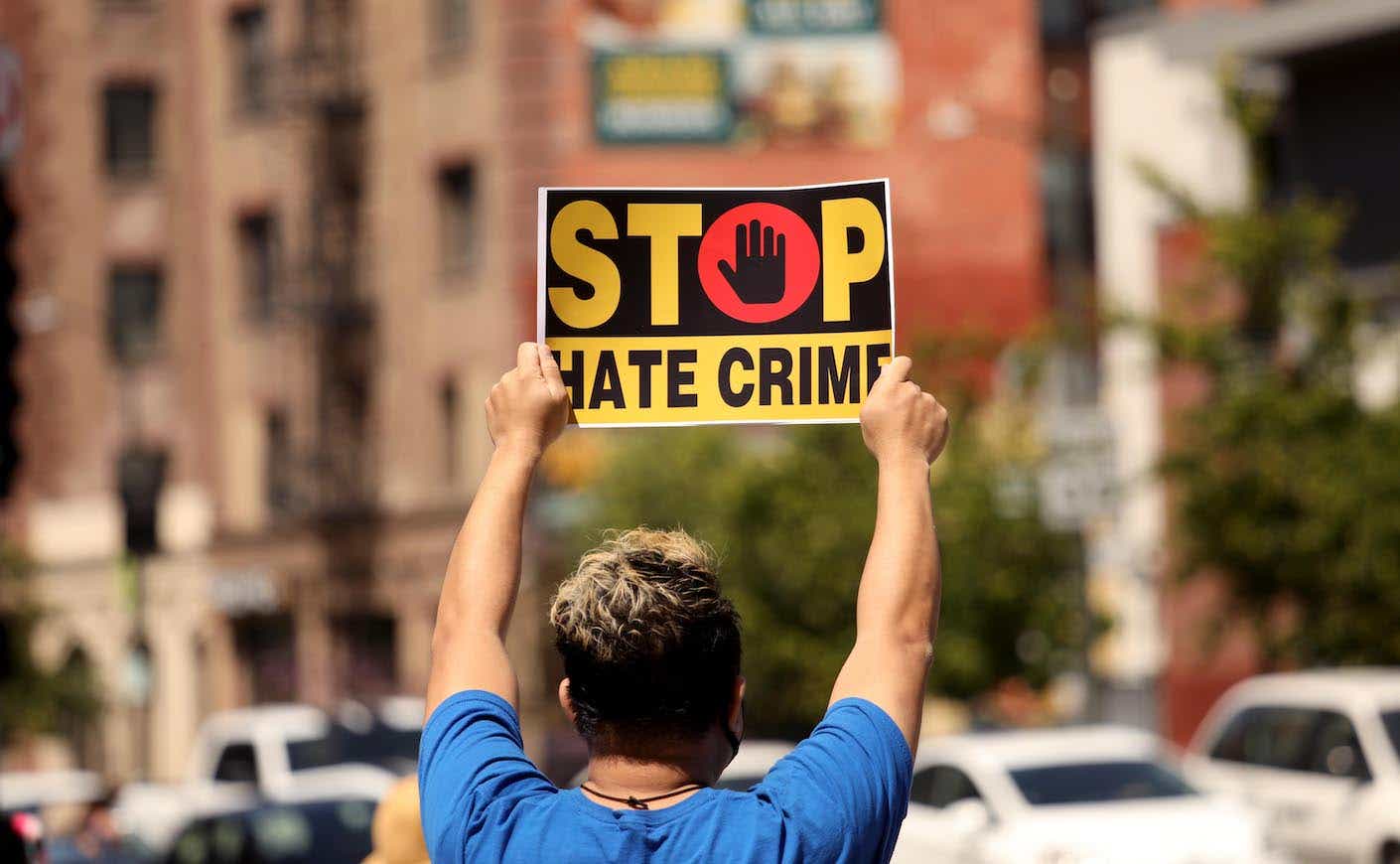Race hate is on the rise in the U.S., and it's up to all of us to do our part to stop it. Katie sat down with ADL national director and CEO Jonathan Greenblatt to talk about the chilling increase in anti-Semitism and hate crimes — in 2020 alone, there were 7,759 incidences of them, marking the biggest uptick in more than a decade. Jonathan shared some steps we can all take to reverse this horrifying trajectory. None of us, he says, can ever take our democratic freedoms for granted.
Here's an excerpt from Jonathan's important and urgent book, It Could Happen Here: Why America Is Tipping from Hate to the Unthinkable―And How We Can Stop It:
A framework for fighting back
In calling out Tucker Carlson, I was deploying a simple but powerful framework ADL developed to help individuals find their voices and respond to hate. It’s called “Speak Up, Share Facts, Show Strength.”
Speak up means when you see something, you say something, even if it’s uncomfortable. Muster the courage to step up and step out, even if you’re alone.
Share facts means grounding your response in evidence and data. If you’re engaging online, speak as calmly and respectfully as you would if the conversation were occurring face to face.
Show strength means digging deep and boldly defending yourself but also looking out for those in need of protection. Stand up for yourself and serve as an ally in situations when hatred doesn’t affect you directly.
We designed the three Ss to encapsulate the ADL’s one hundred years of experience fighting antisemitism and hate of all types. It’s an easy-to-remember construct that helps our hundreds of staffers and thousands of volunteers across the country respond quickly and effectively when people ask them how to combat hate. No matter your age, profession, or stature in the community, you can use the three Ss to stop the virus of hate from spreading.
Taking action close to home
Does your city, county, or town have a council against hate? What else is it doing to counter the epidemic of violent extremism? Our local governments touch our daily lives in so many ways — educating our kids, picking up our trash, responding to our emergencies, keeping our roads clean, and so on. Given their direct impact, they can play a pivotal role in the fight against hate as long as we effectively mobilize them.
How local government can make communities safer
The specific ways your local government might make your community safer and more inclusive are many. Policies and initiatives might include these:
- Holding weeklong anti-hate events — like Berkeley, California, did — to raise awareness and rally the community to take up the fight against hate.
- Passing a municipal hate-crime law — like Denver, Colorado, did — that addresses gaps in state-level laws, allowing for better prosecution of these crimes.
- Plastering anti-hate messages on city vehicles — like Gresham, Oregon, did — that reaffirm inclusivity and tolerance as a community value.
- Creating a Compassionate City Initiative — like Westland, Michigan, did — to build “good will among citizens in a way that transcends race, religion, creed, and economic differences.”
- Fostering more inclusivity and acceptance of immigrants — like Dallas, Texas, did — by raising awareness about immigration’s benefits.
Each of these initiatives has been recognized by the United States Conference of Mayors as a “best practice” that other communities might emulate to foster more inclusion and lessen hate.
If you’re a local leader or simply a concerned citizen, invent a best practice of your own. What kinds of specific policies, programs, events, or initiatives might you create to protect your community against hate and render it more inclusive and harmonious? What about introducing antibias education programs in your local school? Or launching an anti-hate book club through the local library? Consider the cultural and social resources you and your community have at your disposal as well as the specific needs or challenges your community has relative to hate.
Don’t shoulder the burden alone. Bring your neighbors together to generate ideas, and create a more civil and compassionate community for everyone.









